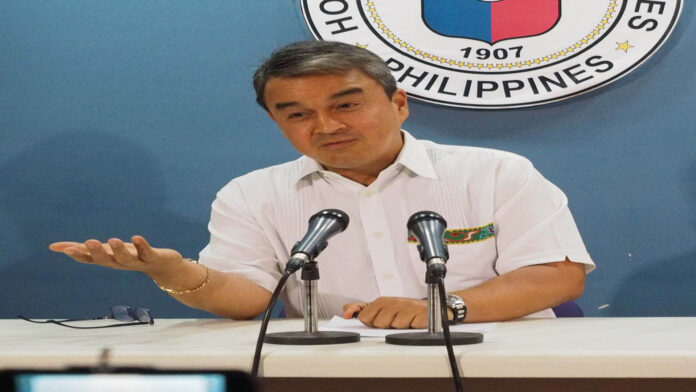Surigao del Norte 2nd District Rep. Robert “Ace” Barbers on Tuesday expressed alarm over the disclosure of a former engineer of Google known as the “Godfather of Artificial Intelligence (AI)” that the new technology he himself helped develop poses danger to society and humanity.
“The ‘AI Godfather’ himself, Geoffrey Hinton, had been quoted in news reports as saying, ‘AI could kill humans and there might be no way to stop it.’ This is aside from alarms raised by advocacy groups and tech insiders that the new crop of AI-powered chatbots could be used to spread misinformation and displace jobs,” he said.
Upon learning of the risk, Barbers urged his colleagues in the House of Representatives to speed up the passage and enactment of a measure he proposed earlier, creating a “superbody” that would protect the public from the risks and dangers posed to the world by the emerging global AI technological phenomenon.
Quoting news reports, he said the wave of attention around ChatGPT late last year helped renew an arms race among tech companies to develop and deploy similar tools in their products.
“And based on reports, OpenAI, Microsoft, and Google are at the forefront of this trend but IBM, Amazon, Baidu, and Tencent are working on similar technologies,” Barbers, chairman of the House Committee on Dangerous Drugs, said. “I don’t want to sound like an alarmist. But we have no way of stopping the global use and development of AI. And while we acknowledge the benefits that AI might bring, we should also seriously consider the great risks and dangers it poses to society and humanity.”
Early this year, the solon from Mindanao filed House Bill (HB) 7396, which seeks the creation of an agency called Artificial Intelligence Development Authority (AIDA), a “superbody” that would undertake the tasks, duties, and responsibilities in the development and implementation of a national AI strategy.
HB 7396 or “An Act Promoting the Development and Regulation of AI in the Philippines,” seeks to address the potential risks and challenges by providing a comprehensive framework for the development and regulation of AI in the country.
“While the Philippines recognizes the importance of AI in the development of the country, the rapid phase of technological advancement in AI also poses risks and challenges that must be addressed to ensure that its benefits are maximized, and its negative impacts are minimized, if not avoided,” he said.
Barbers acknowledges how the Filipinos are looking at AI’s positive potential. However, there should be an agency that would act as a “watchdog” to guard against unscrupulous individuals who would take advantage of or use it for their selfish or criminal ends.
“Nuong nauso ang Internet at naglabasan ang iba’t-ibang social media platforms, tulad ng Facebook, Messenger, Viber, Instagram, at iba pa, ginamit din ito ng mga masasamang loob para maglikha ng iba’t-ibang uri ng criminal schemes tulad ng financial scams, drug trafficking at extortion. Sa paglabas ng bagong technolohiya na AI, tiyak din na may mga tao na gagamitin ito sa kasamaan (When the Internet went trendy and different social media platforms came to existence, such as Facebook, Messenger, Viber, Instagram, etc., unscrupulous persons used them in various criminal schemes, such as financial scams, drug trafficking, and extortion. With this new AI technology, many people would also surely use it in dubious activities,” he said.
Barbers noted that countries, such as the United States, Japan, Taiwan, and Singapore, have enacted laws or issued executive fiats to promote AI usage, and at the same time protect their citizens from individuals adopting criminal schemes using the AI transformative technology. (PNA)


